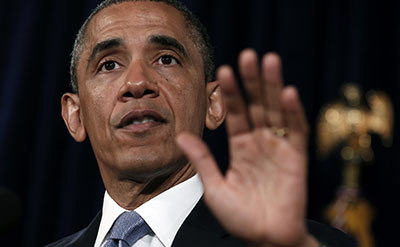
For clues to censorship in Hong Kong, look to Singapore, not Beijing
When journalists covering pro-democracy demonstrations in Hong Kong on September 28, 2014, got word that protesters were having problems with cell phone service, it appeared to be a familiar response from governments across the world to dissent.
Yahoo! End-to-End email preview promises greater protection for journalists
Good news for journalists wanting added protection from surveillance. Yahoo! has announced a technical preview of its email security tool End-to-End, which it has been developing in collaboration with Google. This is another milestone in the tech companies’ efforts to protect users not just from outsiders, but also from the companies themselves.
While tech companies call for spying reform, telcos silent
On Monday, eight of the world’s leading technology companies set aside their rivalries to issue a direct challenge to U.S. lawmakers: lead the world by example and fix America’s broken surveillance state. Although the tech companies’ statement sends a powerful message, notably absent from the letter’s signatories is the appearance of a single telecommunications company,…
Is China silencing rumors, or the public?
China’s Internet has changed fundamentally since Shi Tao was given a 10-year prison sentence in 2005. Shi’s case was a marker of sorts— the first high profile sentencing in China for online activity. The government says 40 percent of the population is online as of December 2012. That’s 564 million people. In 2005, penetration was…
In NSA surveillance debate, tech firms urge transparency
Some of the Internet companies at the heart of the outcry over U.S. government surveillance today joined with human rights and press freedom groups, including CPJ, in calling for greater government disclosure of electronic communications monitoring.

Secrecy, scale of PRISM raise alarms
Government surveillance of electronic communications “should be regarded as a highly intrusive act that potentially interferes with the rights to freedom of expression and privacy and threatens the foundations of a democratic society,” Frank La Rue, U.N. special rapporteur for freedom of expression, warned in a report issued less than two months ago. “States should…

Singapore bloggers wary of news site license scheme
Singapore’s Internet community is in backlash since the government announced on May 28 a new licensing scheme for “news websites”–a term it did not define–arguing that digital news platforms ought to be regulated on par with offline media. The government said the scheme would take effect June 1.
